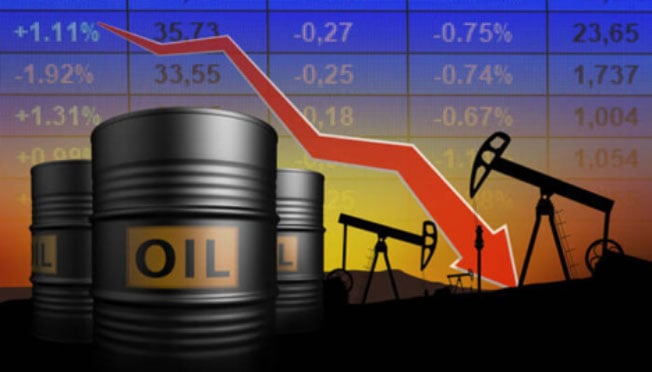The World Bank’s April 2025 Commodity Markets Outlook projects a significant decline in crude oil prices, forecasting an average of $64 per barrel in 2025, down from $80.7 in 2024 and further decreasing to $60 in 2026. This downward trend is primarily attributed to escalating concerns about global economic growth, triggered by the United States’ announcement of substantial trade tariffs on April 2, 2025. This event led to a sharp decline in oil prices, dropping below $63 per barrel in early April, marking the lowest level since April 2021. The imposition of tariffs caused a $12 per barrel decrease within just four trading days, representing the 11th largest four-day price drop since 1990. The report suggests that, assuming a stable foreign exchange rate, this decrease in crude oil prices will likely translate to stable prices for petroleum products at the consumer level.
Despite the overall downward trend in oil prices throughout the beginning of 2025, the first quarter of the year experienced a slight price increase. While Brent crude prices had fallen to $70 per barrel by early March 2025, a combination of factors, including the tariff impact, ultimately resulted in a $1 per barrel increase during the first quarter. This partially offset a $5 per barrel decrease observed in the final quarter of 2024. The report highlights the volatility of the oil market and the interplay of various economic and political factors influencing price fluctuations.
Global oil demand experienced moderate growth in the first quarter of 2025, increasing by 1.2 million barrels per day (m/d), or 1.2%, compared to a 1.1% growth in the fourth quarter of 2024. This growth was driven by increased demand in both China and advanced economies. China’s oil demand edged up by 0.2 m/d (1.4%) in the first quarter of 2025, a slight acceleration from the 1.0% growth seen in the previous quarter. Advanced economies also experienced increased demand, with consumption rising by 0.4 m/d (0.9%), compared to 0.3% in the preceding quarter. These figures indicate a continued, albeit modest, global appetite for oil despite the economic uncertainties and price fluctuations.
The report further analyzes regional trends in oil consumption throughout 2024. While global demand saw ups and downs across different regions, China, Europe and Central Asia (ECA), and Latin America and the Caribbean (LAC) experienced slower growth in oil consumption. Conversely, regions like East Asia and the Pacific (excluding China), the Middle East and North Africa (MNA), and South Asia (SAR) witnessed accelerated growth. Sub-Saharan Africa (SSA) experienced a decline in oil consumption, while demand in advanced economies remained relatively flat. These regional variations highlight the complex interplay of economic development, policy changes, and technological shifts impacting oil consumption patterns.
China’s decelerated oil demand growth in 2024 is particularly noteworthy, attributed in part to the rising popularity of electric vehicles (EVs). The report estimates that over 40% of new car purchases in China during 2024 were EVs. This significant market penetration of EVs has contributed to a reduction in oil demand, estimated at approximately 0.45 m/d. This suggests that the transition to electric mobility is beginning to have a tangible impact on oil consumption patterns, particularly in major markets like China.
In summary, the World Bank’s report paints a picture of a dynamic and evolving oil market. Decreasing crude oil prices, driven by global economic concerns and trade tensions, are projected to continue into 2026. While global oil demand exhibited moderate growth in early 2025, regional variations and the increasing adoption of electric vehicles are reshaping consumption patterns, particularly in China. These trends underscore the ongoing transition in the global energy landscape and the complex interplay of factors influencing the future of oil demand. The report provides valuable insights for policymakers, businesses, and investors navigating the uncertainties and opportunities presented by this evolving market.


